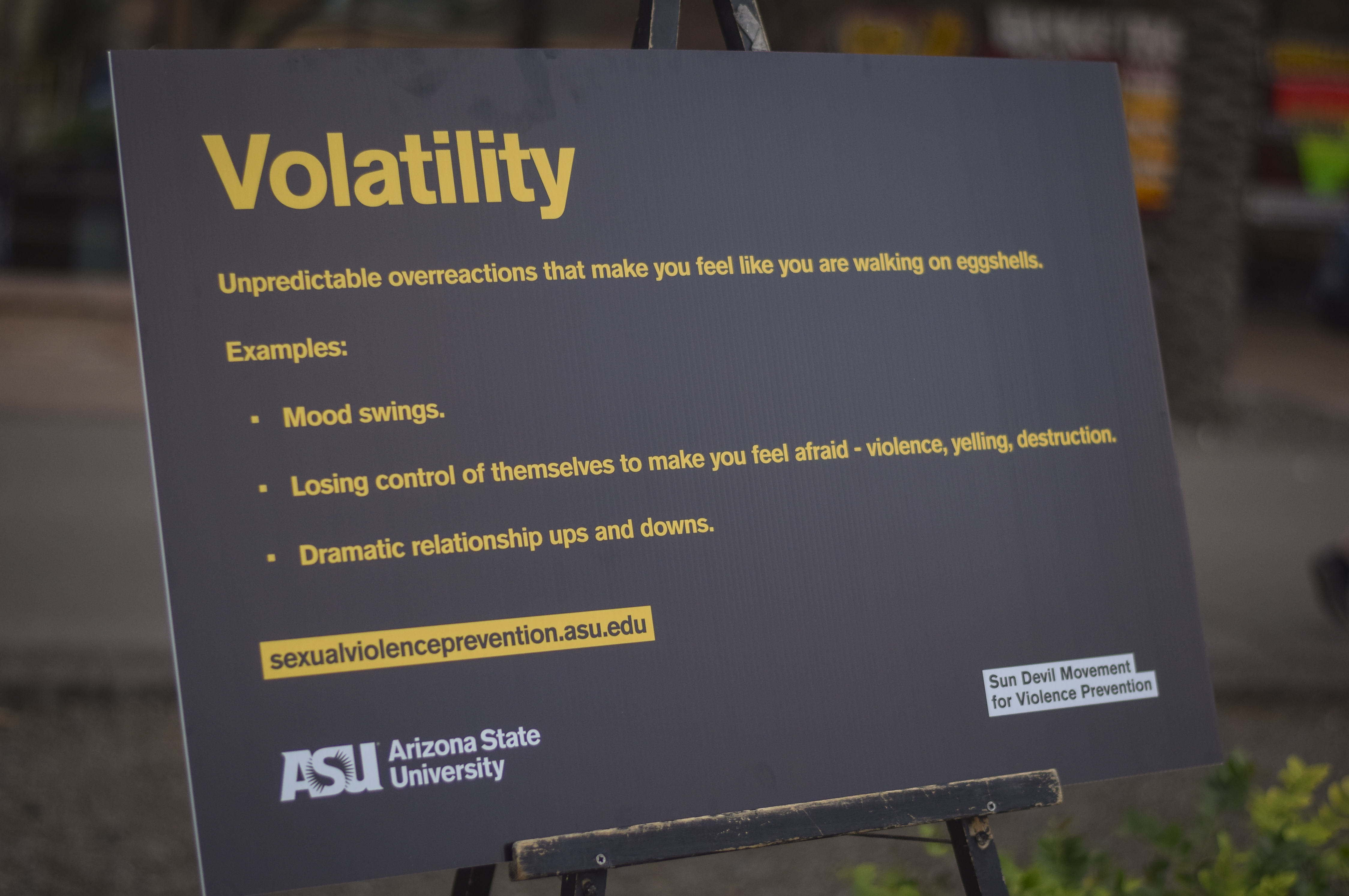5 red flags to watch for in relationships
Relationships can come with challenges. While a healthy relationship can improve a person’s health and well-being, unhealthy relationships can negatively impact us.

The Sexual and Relationship Violence Prevention Program spreads awareness about red flags on campus.
It is important to be aware of how romantic relationships, friendships and other connections may impact all areas of your life, including your work, social networks and family.
To raise awareness about healthy relationships and well-being, ASU’s Sexual and Relationship Violence Prevention Program hosted the Red Flag Campaign this semester. The initiative encourages Sun Devils to actively look for red flags in relationships.
According to the spring 2019 American College Health Association National College Health Assessment, 34.4% of ASU students reported that their intimate relationships had been difficult to handle during the last 12 months, and 29.5% said other social relationships had been difficult. The Sexual and Relationship Violence Prevention Program is here to serve as a resource to Sun Devils as they navigate the challenges associated with maintaining healthy relationships and raise awareness regarding the signs that indicate it’s time to make a change.
Here are five red flags to watch for in romantic relationships, friendships or other social ties.
Betrayal
Betrayal in relationships is most commonly linked to infidelity but could also mean betraying a trust or confidence.
Although most people are aware of what it means when a partner cheats, cheating is just one example of betrayal. Many people do not realize that omitting details, lying or leaving a friend or partner out of specific activities are also forms of betrayal. More examples include acting differently when you are not around or being two-faced.
Jealousy
Jealousy, although categorized as a normal emotion, can become unhealthy if it causes someone to lash out or exhibit controlling behavior. An example of unhealthy jealousy is if a partner or friend gets upset when you hang out with others or text someone they feel threatened by.
Accusing a partner of cheating or flirting or becoming possessive in social situations are also unhealthy signs of jealousy. Some of this behavior can also lead to stalking.
Isolation
It is a red flag to feel isolated in any way by someone in your life. A partner’s attempts to keep you away from other close friends and family or from making new friends are forms of isolation. Another unhealthy sign of isolation is if your partner or friend makes you choose between hanging out with them and other people.
You should not feel bad for wanting to socialize with other people. Making you question your judgment about friends and family and making you feel dependent on your relationship with them for love, money or support is also an unhealthy sign of isolation.
Deflecting responsibility
For many, deflecting responsibility can be a confusing red flag. If someone is deflecting responsibility it means they make excuses for their unhealthy behavior.
Instead of owning up to their mistakes and actively working to fix them, the person may simply make excuses. Often they may blame you, other people, past experiences, alcohol or other drugs for their actions. Avoiding discussion or acknowledgment of certain behaviors can also be a form of deflecting responsibility.
Volatility
Unpredictable overreactions can make you feel like you are walking on eggshells. If you feel that you cannot be yourself in certain situations for fear of triggering your partner or friend, you may be experiencing volatility in your relationship.
More examples of volatility include mood swings and dramatic relationship ups and downs. It is unhealthy if someone in your life loses control of themselves or exhibits violence or destruction to make you feel afraid.
More information on healthy relationships and sexual violence awareness, prevention and response can be found on sexualviolenceprevention.asu.edu and ASU Sexual and Relationship Violence Prevention Instagram, Twitter and Facebook. For more information contact [email protected].